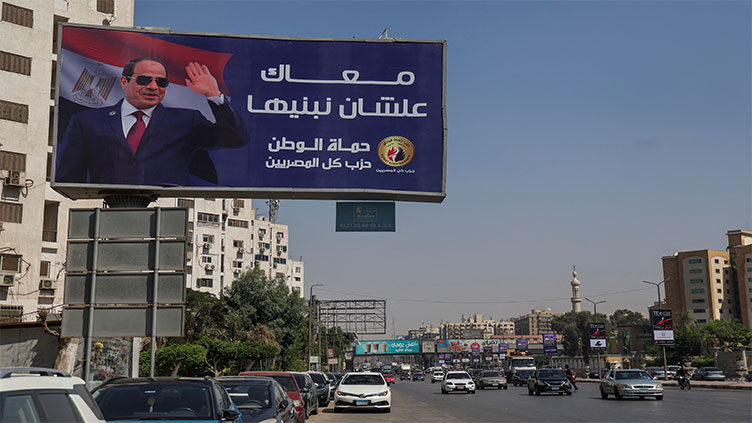Egypt to vote for president in December, Sisi expected to win

World
Egypt will hold a presidential vote on Dec. 10-12, the elections authority said on Monday.
CAIRO (Reuters) - Egypt will hold a presidential vote on Dec. 10-12, the elections authority said on Monday, with President Abdel Fattah al-Sisi widely expected to win reelection despite an economic crisis including record inflation and foreign currency shortages.
Sisi, 68, can stand for a third term due to constitutional amendments in 2019 that also extended the length of presidential terms to six years from four, opening the way for him to stay in office until at least 2030.
Election results are expected to be announced on Dec. 18 and, in the event of a run off round, final results should be announced on Jan. 16 at the latest, the election authority said.
Though Sisi has not formally announced his candidacy, pro-government parties have started a campaign including billboards around Cairo backing his reelection.
Sisi was declared winner of both the 2014 and 2018 elections with 97% of the vote. In 2018 he faced just one opponent, himself an ardent Sisi supporter, after the main challenger was arrested and other hopefuls pulled out, citing intimidation.
Four other candidates have expressed an intention to run this time, most prominently a former member of parliament, Ahmed Eltantawy, who says security services have arrested some of his associates and blocked him from holding election events. Officials have not responded to his allegations.
Former army chief Sisi became president in 2014, the year after he led the overthrow of democratically elected Mohamed Mursi of the Muslim Brotherhood, following protests against Mursi's rule.
Analysts say Sisi retains the backing of the security services, most importantly the army, which has become more powerful and expanded its economic influence.
Sisi's presidency has been marked by a crackdown on dissent across the political spectrum.
Sisi and his backers said the measures were needed to bring stability after the 2011 ousting of former president Hosni Mubarak in the "Arab Spring" uprisings and pave the way for economic development.
Activists say tens of thousands have been jailed since 2013, often without fair trials, and that the crackdown has continued despite the pardoning of some high-profile prisoners and the launch of a national political dialogue.

